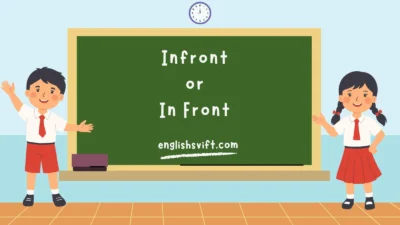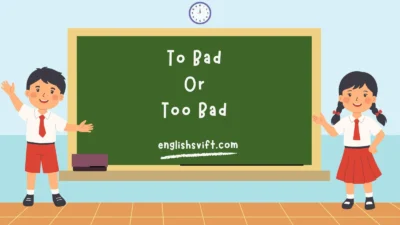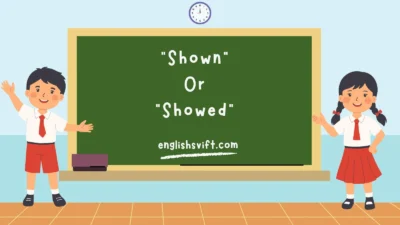Spelling slip-ups happen to the best of us, but few are as common — or as tricky — as mixing up greatful and grateful. At first glance, “greatful” feels right; it’s positive, it’s upbeat, and it even starts with “great.” Yet, it’s not the correct form, and using it can chip away at your credibility in writing.
The truth is, grateful has nothing to do with “great” and everything to do with gratitude, a word rooted in centuries of language history. Whether you’re crafting a heartfelt thank-you note, polishing your resume, or posting on social media, mastering this spelling matters more than you think. In this guide, we’ll explore the difference, share memory tricks, give real-life examples, and help you lock the right spelling into your brain for good.
By the end, you’ll never hesitate over “greatful” vs “grateful” again.
Greatful or Grateful — Why This Common Spelling Mistake Still Happens in 2025
Even in 2025, many people still type greatful when they mean grateful.
It’s one of those spelling traps that looks “reasonable” — after all, great is a positive word, and feeling grateful is a positive emotion. But here’s the truth: “Greatful” is not a legitimate English word.
The confusion often stems from:
- Phonetic resemblance — it sounds like “great.”
- Autocorrect habits — your device might not flag it immediately.
- Visual association — “great” feels like it should be part of the spelling.
Yet, language history tells a different story. Let’s dig into why.
The Correct Spelling: Why “Grateful” Wins Over Greatful
| Incorrect | Correct | Why Correct? |
| Greatful | Grateful | Derived from the Latin gratus, meaning “thankful” or “pleasing” |
| Gratefull | Grateful | Double “l” at the end is unnecessary |
| Greatfull | Grateful | Extra “l” makes it incorrect |
The correct spelling is “grateful”, with one “l” and no “ea” after “gr.” It’s been accepted by major dictionaries like Merriam-Webster, Oxford, and Longman for centuries.
How Misspelling “Greatful” Slips Into Everyday Writing
It’s easy to slip up. Misspellings often sneak into:
- Emails (“I’m so greatful for your help”)
- Social media posts (hashtags like #FeelingGreatful)
- Thank-you cards
- School assignments
- Job applications
Tip: If you’re ever second-guessing the spelling, think of the word gratitude — they share the same root.
Origin of “Grateful” — From Latin Gratus to Modern English
The word grateful evolved from the Latin word gratus (“pleasing, thankful”).
Over time, it entered Middle English as gratefull, eventually simplifying to the modern grateful.
Language lineage table:
| Language Stage | Spelling | Meaning |
| Latin | gratus | pleasing, thankful |
| Middle English | gratefull | full of gratitude |
| Modern English | grateful | feeling or showing thanks |
Difference Between “Greatful,” “Gratefull,” and “Grateful”
| Spelling | Status | Notes |
| Greatful | ❌ Incorrect | Common misspelling |
| Gratefull | ❌ Incorrect | Archaic form, no longer in use |
| Grateful | ✅ Correct | Standard English spelling |
Is “Greatful” Ever Acceptable in Any Context?
Short answer: No — not in standard English.
However, you might find “greatful” in:
- Brand names (e.g., “The Greatful Café”)
- Creative works (poetry, music)
- Social media usernames
That said, in professional, academic, or formal contexts, “greatful” will hurt your credibility.
Grateful as an Adjective: Meaning, Usage, and Examples
Definition: Feeling or showing appreciation for something received or done.
Examples:
- “I’m grateful for the kindness you’ve shown.”
- “She was grateful to her friends for their support.”
- “We’re grateful to have you here today.”
Synonyms for Grateful: Appreciative, Obliged, Thankful, and More
| Synonym | Nuance |
| Appreciative | Recognizing value in what was done |
| Obliged | Feeling duty-bound or thankful |
| Thankful | General sense of thanks |
| Blessed | Feeling fortunate |
| Indebted | Strong sense of owing gratitude |
Antonyms of Grateful — Understanding the Opposite Meaning
- Ungrateful
- Thankless
- Unappreciative
- Inconsiderate
Example:
“Ignoring their help was both careless and ungrateful.”
Gratefully as an Adverb: Modifying Verbs in Sentences
- “She accepted the award gratefully.”
- “He nodded gratefully when given the opportunity.”
How to Use “Grateful” in Personal, Academic, and Professional Writing
| Context | Example |
| Personal | “I’m grateful for our friendship.” |
| Academic | “The researcher was grateful for the funding.” |
| Professional | “I’m grateful for the opportunity to contribute to this project.” |
Common Grammar Mistakes with “Grateful” and How to Avoid Them
Mistake: “I’m greatful for your support.”
Fix: Use “grateful.” Remember: gratitude → grateful.
Pronunciation Tips — Why “Grateful” Doesn’t Sound Like “Great”
Phonetic: /ˈɡreɪt.fəl/
Yes, it sounds like “great,” but the root is from gratus, not “great.”
Grateful in Business and Formal Communication (Emails, CVs, Job Applications)
Professional phrasing:
- “I’m grateful for the chance to interview.”
- “We’re grateful for your continued partnership.”
Mnemonics to Remember the Correct Spelling Every Time
- Think: “GRATitude makes you GRATEFUL.”
- Picture “grate” (like a cheese grater) → it’s not “great.”
Real-Life Examples: Grateful Moments from Daily Life
- Waking up to a sunny morning
- A stranger holding the door for you
- Getting help on a difficult project
Table of Correct vs Incorrect Spellings with Sample Sentences
| Spelling | Correct? | Example |
| Greatful | No | ❌ “I’m greatful for your help.” |
| Grateful | Yes | ✅ “I’m grateful for your help.” |
| Gratefull | No | ❌ “I feel gratefull today.” |
The Psychology of Gratitude — Why Feeling Grateful Improves Your Life
Studies show gratitude:
- Improves mood
- Strengthens relationships
- Reduces stress
- Increases resilience
How Social Media Amplifies Spelling Errors like “Greatful”
Hashtags like #FeelingGreatful get thousands of uses — reinforcing the error.
Solution: Use #FeelingGrateful and help others learn.
Tools and Apps to Check Your Spelling (Grammarly, ProWritingAid, QuillBot, Promova)
| Tool | Purpose |
| Grammarly | Real-time spelling & grammar check |
| ProWritingAid | Deep writing analysis |
| QuillBot | Paraphrasing & tone adjustment |
| Promova | Language learning |
Cultural and Historical References to Being Grateful
Thanksgiving, religious practices, and historic speeches often emphasize gratitude.
Idioms, Quotes, and Expressions Using “Grateful”
- “Forever grateful”
- “Eternally grateful”
- “Grateful heart”
The Role of Autocorrect in Fixing or Creating Spelling Mistakes
Sometimes it helps, sometimes it swaps in “greatful” if your dictionary is outdated.
Grateful in Literature, Music, and Popular Media
- The Grateful Dead (band)
- “Grateful” (song titles across genres)
Final Word — Cementing the Correct Spelling in Your Vocabulary
If you remember gratitude → grateful, you’ll never fall for “greatful” again.
FAQs
Q1: Is “greatful” ever correct?
A: No, it’s always a misspelling in standard English.
Q2: What’s the root word of “grateful”?
A: Latin gratus, meaning pleasing or thankful.
Q3: How can I remember the correct spelling?
A: Think of “gratitude” — they share the same start.
Q4: Does “grateful” mean the same as “thankful”?
A: Mostly, but “grateful” can carry a deeper emotional tone.
Q5: Can “grateful” be used in formal writing?
A: Yes — it’s perfectly fine in academic, business, and legal contexts.
Conclusion
In 2025, the spelling grateful remains the gold standard. Whether you’re writing a heartfelt thank-you note, a formal email, or a social media post, getting it right matters. Beyond just spelling, understanding gratitude enriches your language and your life.
When in doubt, remember:
“A grateful heart sees blessings where others see nothing at all.”



